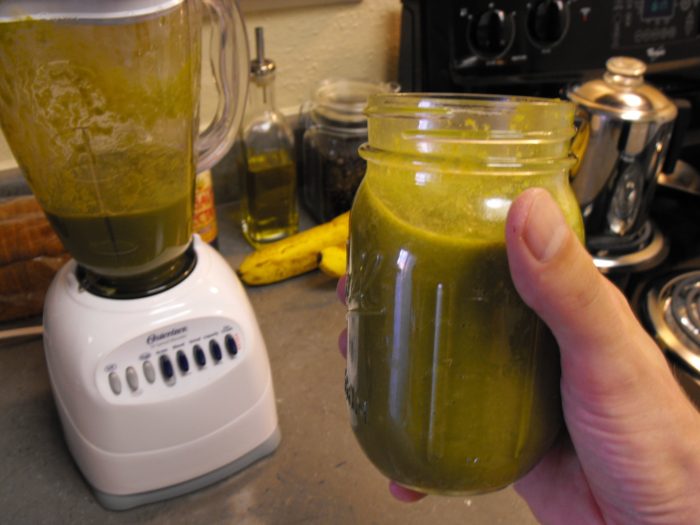Drinking green smoothies every day will not offset chronic stress.
Doing a detox twice a year will not replenish months of poor sleep hygiene.
The highest quality supplements in the world cannot replace a nutrient deficient diet.
Cutting out half the food groups will not make up for avoiding moving our bodies regularly.
Before buying the latest supplement, detox teas, or expensive reset programs, it’s helpful (and in my opinion, absolutely necessary) to do an honest check-in to see if we have the foundations of health in place, first and foremost.
Because if we don’t have the foundations in place, spending money, time, and effort adding all these additional, and often unnecessary things, can be futile.
Foundations of health checklist:
- Adequate and uninterrupted sleep
- Regular exercise/movement
- Well-balanced nutrition
- Stress management techniques
First of all, I get it. We live in a confusing time in the health and wellness world.
Fads and extremes make the headlines the most, and there’s a new superfood or must have supplement that takes the stage every few months.
The foundations of health don’t make the news as much because, well, they’re free.
There is not nearly as much money in teaching people about proper sleep hygiene, to promote moving our bodies in a way that we love on a regular basis, eating a well-balanced diet (that doesn’t need hundreds of dollars of supplementation each month), and that stress management can easily be done from the comfort of our own home, via connecting with our breath.
From my experience working in the health and wellness world, I find people often get stuck on categorizing things into good and bad, which ultimately sets them up for an inevitable feeling of failure when they consume or do something they categorize as “bad.”
The most common questions I get are:
Is meat good or bad?
Is juicing actually healthy or not?
Is the fastest way to weight loss cutting out carbs?
Is caffeine helping or hurting my health?
And so on.
The questions asked are always looking for definitive, black-and-white answers.
Unfortunately, in the nutrition research sphere, things are rarely, if ever, black and white.
There is no perfect or ideal diet. What works for someone, may not work for another. And even more so, what works for someone this year, may need to be adjusted drastically next year.
Our health and energy is dynamic and ever changing. The way we need to eat, move, and live is constantly in flux. The best thing we can do for ourselves is get to know ourselves a little better. We need to get to know how we feel when we eat more of this, or less of that. We need to experiment with daily routines, with ways to move, and with ways to eat that enable us to feel good in our bodies, clear in our minds, and energized, yet steady.
And yes, it’s easier said than done—especially with all the noise and nonsense currently out there with health and wellness trends. People are often more plugged in to the external world than to their innermost selves.
For those struggling to figure out what works for them, you are not alone. And that’s when it’s really helpful to reach out to a practitioner who takes the whole person into consideration.
Naturopathic doctors, integrative practitioners, holistic nutritionists, and functional medicine doctors are all on the rise, and for good reason. What they have in common is they have a whole person approach, and individually tailor recommendations to meet the unique needs of the individual.
It’s for that reason I’m a huge proponent of the individually tailored approach.
The way we live needs to be sustainable, well-rounded, and also enjoyable! And what that looks like for us could look the polar opposite for our best friend, sister, or neighbour.
Health and wellness plans and protocols don’t have to be extreme or daunting or painful.
There is a middle ground out there, a way of living, eating, and moving that works and feels good.
The whole “no pain, no gain” thing is silly and baseless.
Our health practices shouldn’t be painful or stressful, because if they are, I can pretty much guarantee they are not sustainable.
Before buying into the latest trend, fad, or what gets the most attention in the news, come back to the checklist first.
- Adequate and uninterrupted sleep
- Regular exercise/movement
- Well-balanced nutrition
- Stress management techniques
If all four are out of balance at the moment, start with one. Once one of those becomes more of a habit, work on another.
One of the keys to sustainable health practices is making small, incremental changes, slowly. Doing an entire diet and lifestyle overhaul doesn’t typically work in the long run for a variety of reasons that have been thoroughly studied in behaviour change research.
Start slow, small, and simple with the foundations of health.
And remember that we need to be kind to ourselves, and meet ourselves where we are at (without judgement).
There’s a gradual snowball effect when we feel better in one area of our lives.
Once the foundations are in place, we can then see where we actually may need more support for our overall health.
I’m not anti-supplement by any means. I take a few myself, and have really seen the benefits. Yet, it’s absolutely key to have the foundations in place first and foremost, so we aren’t unnecessarily supplementing or trying to mask the underlying issue and root cause of the problem.












Read 0 comments and reply